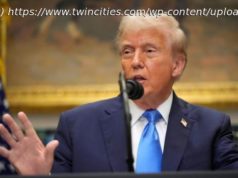The president’s deals with foreign leaders are like a quid pro quo, except Americans don’t get anything out of them.
After a tumultuous week of unpredictable twists and turns during President Donald Trump’s visit to Europe, anxiety levels have risen among experts and policy makers about the coming summit between Trump and President Vladimir Putin. As President Trump himself has noted, there is no shortage of issues demanding the attention of the two leaders: Syria, Iran, arms control and – who knows – maybe even Russia’s interference in America’s elections. But energy could snake its way onto the agenda, and Trump needs to be careful not to give Putin concessions in exchange for something the Russian president already plans on doing.
Three things suggest energy may be on Trump’s mind when he enters the room with Putin on Monday. First, the Trump administration is reported to be debating whether to release some oil from U. S. emergency stockpiles to ease the prices that Americans are currently paying at the pump. Second, the president has spent an inordinate amount of time in the past weeks – as recently as July 4 – berating OPEC members for not putting enough oil on global markets and creating higher prices. Thirdly, Trump himself raised Russia’s energy relationship with Germany while in Europe this week, accusing America’s ally of being under the thumb of Moscow given Germany’s dependence on Russian energy. Particularly in a summit without a clear and structured agenda, the fact that energy and elevated oil prices are on the mind of Trump could easily translate into a conversation about the topic.
There is, however, another reason we might see a commitment on energy being touted as a “deliverable” from the summit. Trump, presumably, is sensitive about what some see as a developing pattern: his giving away significant American concessions in exchange for nothing tangible. The most egregious example of this is the administration’s decision to shift the U. S. Embassy from Tel Aviv to Jerusalem. But his tête-à-tête with North Korean leader Kim Jung Un also smacked of the same dynamic; Trump canceled military exercises between the U. S. and its Asian allies, for no obvious return.
Of all the “gives” that Putin might offer and Trump might be tempted to accept, the easiest one is a Russian promise to increase oil production and exports, allegedly to ease the tightening global oil market. Trump – and all Americans – should be very skeptical if such an arrangement is presented as either a demonstration of Russia goodwill or, worse, as a quid pro quo in any larger agreement. It would, in fact, be Putin seeking to “trade” something he is already planning to do. Russia has been eager to ease the constraints to which it agreed when it joined forces with OPEC and other oil-producing countries at the end of 2016. This decision to remove oil from markets was an effort to rebalance after an oil glut that forced prices below $30 earlier that year. In fact, Russian insistence to revisit the agreement was a major reason OPEC and non-OPEC producers agreed to reverse course during their Vienna meetings in June.
With or without any discussion of energy during the Trump-Putin summit, the world can expect more Russian oil to hit markets very soon. Already, the federation is producing at record highs and is currently the world’s largest producer of oil. It is poised to increase its production further and is eager to reap the financial benefits of this production. From the perspective of Trump, and even the average American driver, this is good news. But given Russia’s own interests and already developed plans, such action certainly doesn’t warrant any thank you from the U. S.
To contact the author of this story: Meghan L. O’Sullivan at Meghan_OSullivan@hks.harvard.edu
To contact the editor responsible for this story: Philip Gray at philipgray@bloomberg.net






